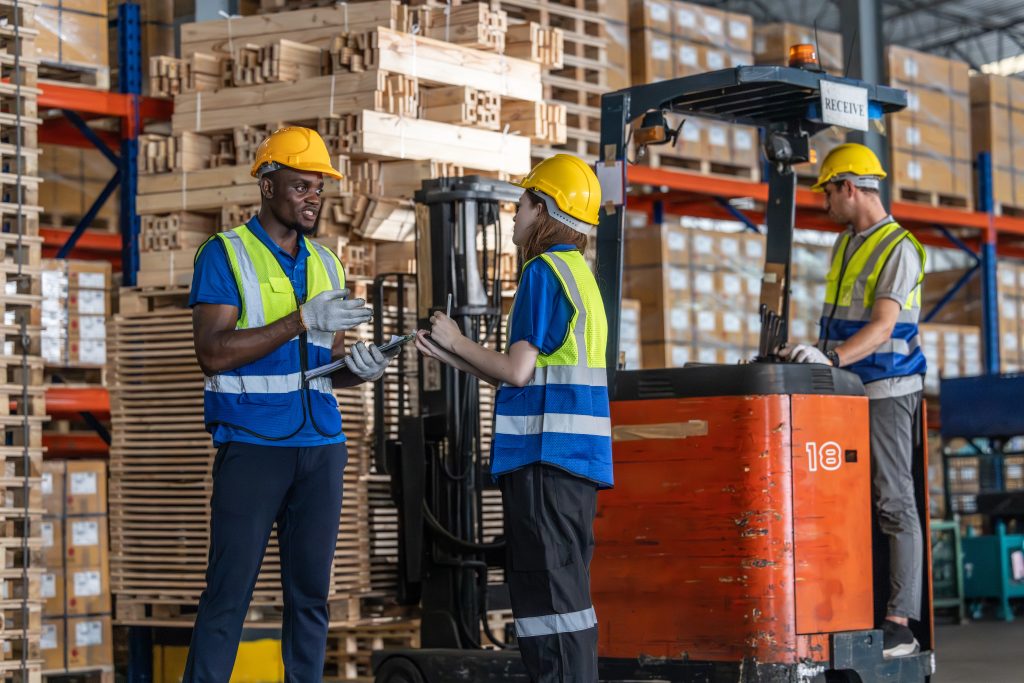5 Qualities to Look For in Work Gloves to Protect Hands From Hazardous Chemicals

When it comes to injury prevention, one of the best strategies is providing employees with all the necessary protective gear. Personal protective equipment (PPE) works to keep your workers safe and healthy on the job, including when working with hazardous materials. As a business owner or manager, ensuring the safety of your team is of paramount importance. When equipping your team with the gear they need, it is important to select equipment that is right for the job. If your employees are using their hands to work with potentially dangerous chemicals, gloves are a necessity.
Protective gloves come in many shapes and sizes. Learning more about qualities to look for in work gloves can help you make an informed decision as to what kind of work gloves will be best for your employees. As you work to improve employee wellness, it can help to have professional guidance. Tailor-made workplace injury prevention programs facilitated by health experts are designed to ensure that your employees stay strong, safe and effective. With the right programs and protective gear, you can make sure your employees avoid preventable injuries and workplace safety violations.
5 qualities to look for in protective gloves
- Chemical resistance — When choosing protective gloves for workers who handle hazardous materials, chemical resistance is crucial. Different glove materials will offer varying levels of resistance. Some materials will resist certain chemicals but be vulnerable to others. To make sure you get gloves with the right level of resistance, the first step is chemical identification. Learn about the specific chemicals that your workers are exposed to; then look into which materials offer resistance from these chemicals. You can look for gloves with high chemical resistance ratings to ensure that they meet the standards of your industry.
- Durability — The best work gloves will be highly durable. Durable gloves help ensure ongoing protection. Whereas flimsy gloves can break and expose workers to injury, durable gloves can provide superior defenses against harmful chemicals. Highly durable gloves can also withstand wear and tear even in intensive working conditions, which is important for workers who use their hands often.
- Thickness — Gloves come in many degrees of thickness. Some working gloves are very dense and thick while others are thin and flexible. The best gloves for your workers will depend on what their job entails. Do they need a lot of finger dexterity? Do they need the protection of a dense material? In most cases, thicker gloves will provide greater chemical resistance. If your employees are handling strong chemicals, thick gloves may be the best option. However, these gloves can also reduce flexibility. In some cases, it may be best to find a balance between thickness and flexibility based on what each task requires. To make sure your workers always have access to the right pair of gloves for a particular task, you may want to stock a few different glove types in the workplace.
- Fit and comfort — When looking into gloves for your workers, comfort is important. While safety is the principal concern, comfort and fit should also factor into your decisions. Workers are more likely to wear their gloves consistently if they are comfortable. By providing well-fitting, comfortable work gloves, you can motivate your employees to follow safe practices on the job. A good fit can also improve finger mobility, allowing your workers to handle tools and materials more effectively. This can lead to higher productivity. Proper fit can also reduce hand fatigue and strain, reducing the risk of exhaustion and injury among your workforce.
- Cost-effectiveness — Do you want to improve safety in the workplace while saving money at the same time? Look for cost-effective gear options. The best options will allow you to save money without compromising on quality. To keep your protective gear affordable, consider bulk purchase options. Some providers offer additional savings for companies that wish to purchase large batches of work gloves. You can also save money in the long term by purchasing durable gloves, as they can reduce replacement frequency.
What type of gloves protects hands from heat and flames?
Chemical resistance is important, but chemicals aren’t the only hazard your workers might face on the job. Work gloves are important in a wide range of industries. Depending on your industry, your workers may not interact with chemicals at all. However, they may need protective gloves for other reasons. For jobs such as welding, protective gear is essential to keep workers safe from heat and flames. Here are some characteristics to look for:
- Proper material — Whether you’re in the restaurant industry or the construction world, providing gloves made from the right materials is essential. To protect from heat and fire, look for heat-resistant materials. The best gloves will use fabrics made from aramid fibers, which are a class of synthetic materials designed for thermal resistance.
- Thermal resistance — When researching options for insulating against high temperatures, look for gloves that offer the right level of resistance. The thermal resistance your workers need will depend on the job. If your employees work with grills to cook food, for example, they will be using equipment that reaches temperatures ranging from 400 to 600 degrees Fahrenheit. To ensure safety, you will need to find gloves that have a sufficient heat resistance rating.
- Extended coverage — Heat spreads. When your employees are working with flames and high temperatures, gloves that only go down to the wrist will likely not offer enough coverage. For maximum protection, look for gloves with long cuffs. Extended cuffs can help protect wrists and forearms from the heat.
What are neoprene gloves used for?
Neoprene gloves are one popular choice for work gloves. Neoprene, a synthetic rubber material, is designed to be stronger than other types of rubber materials. Because of its durability, flexibility and versatility, neoprene is used in a wide variety of applications, ranging from laptop sleeves to work gloves. While neoprene may be the right choice for some situations, it is important to recognize its limitations. Neoprene does not protect against every hazardous chemical. Work gloves made from neoprene can be great for protecting against chemicals such as mild acids. When it comes to chemicals like acetone and lubricating oils, however, neoprene may be ineffective. To ensure worker safety, make sure the gloves your employees use can protect against all the chemicals relevant to the job.
Work-Fit can help you outfit your workers with the right gloves
If you’re researching high-quality safety equipment for your workers, work gloves may only be the start. Work-Fit is here to help you maximize safety in every aspect of the workplace. Our safety experts can help implement programs designed to create a culture of safety and get your workers motivated. By reducing health care and insurance costs as well as minimizing employee downtime, our programs can save your company money while improving the wellness of your workforce.
Contact our team today for more information about our comprehensive services and the many ways we can help.


